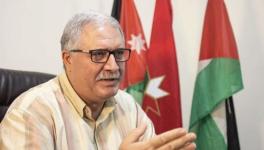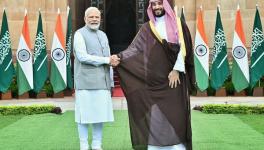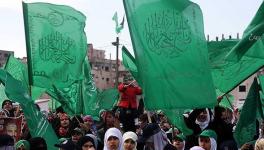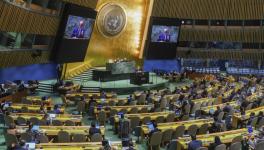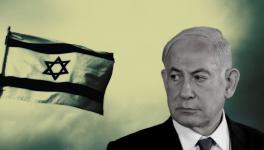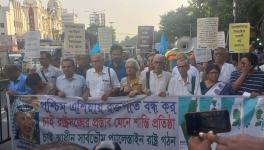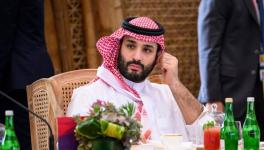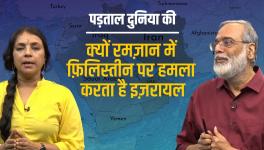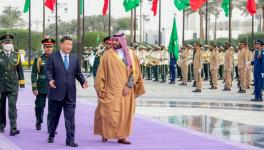Barbarians arrive as UN judges Syria
"How would you cry when the spears of the enemies are broken on your waist?
"And your body is the battleground between your big murderer and your small murderer, where could you send the call?" - Mahmoud Darwish, "Fi Intizar al-barabira [Waiting for the Barbarians]," Al-Karmel, 1987
On September 24, as the UN General Assembly waited to inaugurate its annual session, Lakhdar Brahimi went before the UN Security Council. As the UN-Arab League envoy to Syria after the failed mission of former UN Secretary General Kofi Annan, Brahimi has a very stiff task. The "civil war" in Syria has consumed 20,000 lives, with 235,000 Syrians removed to Iraq, Jordan, Lebanon and Turkey and an additional 1.2 million Syrians displaced inside the country.
Brahimi told the Security Council that the 18-month conflict has broken Syria. The government of Bashar al-Assad, Brahimi says, believes that it can return to the "old Syria," to the period before the outbreak of violence. It has resorted to aerial bombardment and to "medieval" tortures to execute its U-turn. On the other side, an increasingly frustrated and fragmented rebel force sees no solution but the departure of Assad. Brahimi, who was the UN envoy to Afghanistan and Iraq, and who had helped broker the Lebanese peace, seems more aged by this encounter than any of his previous assignments.
In Amman, Jordan, en route between his visit to Damascus and his meetings in Cairo with the Arab League head and the Syria Contact Group, Brahimi told al-Jazeera's Jane Arraf, "I have the support of every member of the Security Council separately. It would be good to have it collectively. I think it will happen. ... I am nothing if I am not their man so if they want me to be their man they will have to support me clearly and openly."
The waters in the council are muddy. The P5 (Permanent Five: China, France, Russia, United Kingdom, and the United States) are deeply divided. Rattled by the UN Security Council Resolution 1973 on Libya (which authorized armed action by "member states"), China and Russia are resolved to prevent any resolution that does not explicitly avoid Chapter 7 of the Charter, which sanctions armed force. They have used their veto power three times to block a Chapter 7 resolution.
Through this year, NATO Secretary General Anders Fogh Rasmussen has dismissed any military intervention in Syria. In Baku 10 days ago, he once more reiterated this understanding, "The situation in Libya and Syria are fundamentally different. For military operation in Libya, NATO had the mandate of the UN Security Council. In Syria, a political solution is the best option." The United States is not eager for another military adventure, particularly after the Libyan intervention seems to have produced results that are not as clearly beneficial for US interests. Deadlock in the Council suits the US as much as the Chinese and Russians - no one is interested in any UN action, or in any armed intervention by NATO.
Rebels of the Free Syrian Army complain that they are not getting the kind of arms they require. Colonel Ahmed Wahab, speaking near Atma (near the Turkish-Syrian border), said, "If foreign countries don't give us [anti-aircraft and anti-tank missiles], we will still win. It will take longer, that's all. We control most of the country. In most regions, the soldiers are prisoners of their barracks. They go out very little and we can move freely everywhere, except Damascus."
Many of these fighters are defectors from the military; others are ordinary people who have left their ordinary lives to eject what they see as authoritarian rule. There are, of course, members of the Muslim Brotherhood, and certainly there are foreign fighters. But these latter do not define the rebellion, nor do they dictate it (as the Iraqi journalist Ghaith Abdul-Ahad showed from Aleppo).
They do not have sufficient arms to overthrow the Assad regime by force in the short term, and neither has their will broken for them to scatter before Assad's aircraft and tanks. This standoff is precisely the situation where the UN must play a role.
One diplomat who was in the Security Council meeting said that Assad "knows that something must change". But Brahimi is not optimistic. A diplomat close to the Brahimi team told me that the envoy is skeptical about the prospects. The West, he feels, has been playing up its antipathy to Assad and its support of the rebels. The French ambassador to Syria, Eric Chevalier, recently said that France was going to expand military aid to the opposition from non-lethal to lethal weaponry.
The French Foreign Ministry has also made it clear that Tehran should have no role in negotiations around Syria (including the Syria Contact Group) until Iran "clarified" its nuclear program and ceased human rights violations. Such a standard makes Brahimi's job very difficult. The West's rhetoric, the diplomat told me, narrows the avenue to a settlement and ensures that the bloodletting continues unabated.
The same UN diplomat noted that US power has been gravely weakened. The Iraqi government outfoxed the Obama administration and forced the exit of the US troops in 2011 (a story told in Michael Gordon and Lt General Bernard Trainor's The Endgame: the Inside Story of the Struggle for Iraq, 2012). In Afghanistan, the US had now withdrawn its 33,000 "surge troops" without any tangible change in the landscape (the Taliban's bon mot, "The Americans have all the watches, but we have all the time," becomes relevant once more). Damaged by the loss of its Egyptian ally and chastised by a lack of easy options regarding Iran, the US appears wounded.
The demonstrations around West Asia and North Africa that broke out in light of an absurd video illuminated the depth of anger at US exertions in the region. There is no expectation that the US will want to act in Syria, when it is trying its best to hold back an Israeli attack on Iran.
Yet, the US Ambassador to the UN Susan Rice continues to make bellicose statements about Syria. These are simply hot air blown into a cauldron already beyond boiling point. It does not help Brahimi to have Rice make these statements, nor the French Foreign Ministry set out preconditions for Iranian participation in negotiations around Syria.
Brahimi, I am told, has invested considerable hope in the Syria Contact Group meeting. Egypt's President Mohammed Morsi has countered the French with his view that Iran is a "major player in the region that could have an active and supportive role in solving the Syria problem." In this same interview on Egyptian television before leaving for New York, Morsi noted, "I don't see the presence of Iran in [the Syria Contact Group] as a problem. We do not have a significant problem with Iran. It is normal like with the rest of the world's states."
Morsi's Contact Group includes one state with close ties to Assad's government (Iran) and three that are openly against Assad (Egypt, Saudi Arabia and Turkey). Iran tried to include Iraq and Venezuela to the Contact Group to balance the deck (see The Mystery of the Syria Contact Group, Asia Times Online September 22), but this was rejected by Egypt. Despite Saudi Arabia's no-show at the Cairo Foreign Ministers meeting of the Contact Group last week, Iran remains clear that there can be no regional solution without the Kingdom.
In an interview with David Ignatius of the Washington Post, Iran's President Mahmoud Ahmadinejad said in the context of a solution for Syria, "In my list of possible avenues to pursue, Saudi Arabia does occupy a place. And I believe it would be great, it would be truly productive, if they also participate." Iran's eagerness to work with Saudi Arabia is a silver lining for Brahimi. It indicates some movement toward serious regional pressure on Assad to move to a transition.
On September 4, Indian Ambassador to the UN Hardeep Puri articulated the global South's view on the Syrian crisis. In an intervention in the General Assembly, Ambassador Puri argued, "There is an urgent need for the international community to close its ranks and send a united message to the Syrian parties urging them to recommit themselves to resolving the crisis peacefully through a Syrian-led inclusive political process that can meet the legitimate aspirations of all Syrian citizens."
The key phrase here is "Syrian-led inclusive political process," which indicates that the UN, and outside interests, must be subordinated to the will of the Syrian people - endgames dreamed up in Washington or Riyadh, Ankara or Tehran should be shelved. All these forces need to unite behind Brahimi so that he can bring the Syrian parties together and forge a political process that will be acceptable to all sides.
The first move will be to create the unity that Brahimi requires, which is precisely what he is not able to get. Posturing on the floor of the General Assembly will not provide the kind of confidence needed by all sides for the Brahimi mission. The "old Syria" is gone, and so is the dream of the imminent collapse of the Assad regime. Brahimi is seeking other roads.
The pity of the UN General Assembly meeting is that all ears will turn to the speeches from US President Obama and the response from the Russian President Vladimir Putin, from the old Cold War adversaries who still see West Asia as their playground. Far more important voices are trying to be heard, but they are powerless in the UN Security Council. They have no genuine ability to strengthen the UN envoy in Syria, because of which the status quo will persist.
Get the latest reports & analysis with people's perspective on Protests, movements & deep analytical videos, discussions of the current affairs in your Telegram app. Subscribe to NewsClick's Telegram channel & get Real-Time updates on stories, as they get published on our website.










